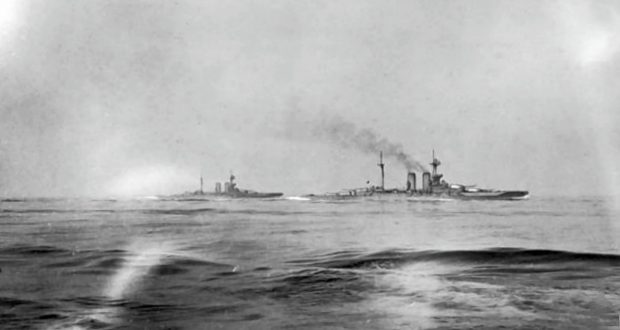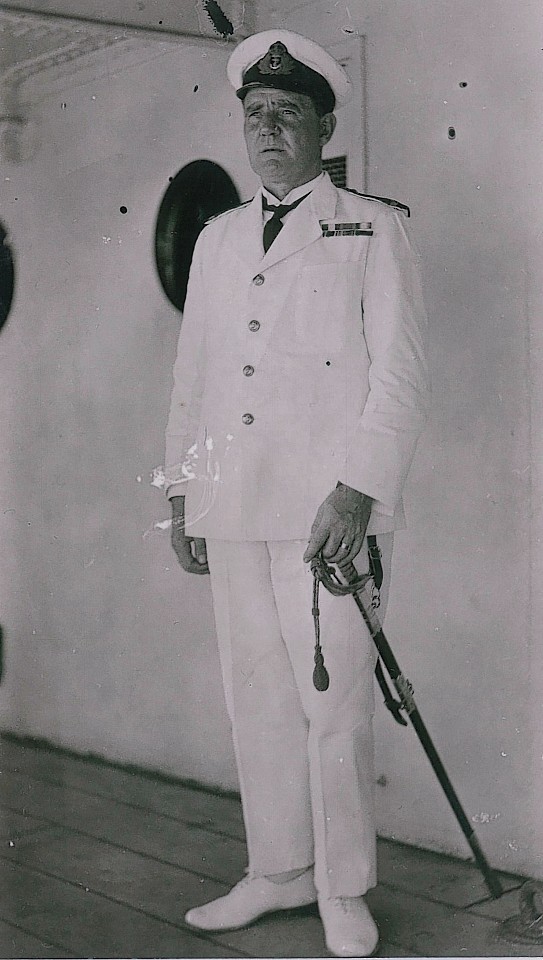The story of a boy who ran away to sea aged 15 and ended up firing a torpedo which sunk a German gun boat at the Battle of Jutland has been told for the first time.
This year marks 100 years since the ferocious WW1 battle, which saw German and British fleets clash in the North Sea near Denmark.
More than 6,000 British sailors and 2,000 Germans were killed in the 36-hour-long engagement, which ended up altering the direction of the First World War.
A century on, the story has now emerged of Henry Epworth, a young man from Edinburgh who fired the first successful British torpedo in the battle and sank a German gun boat.
Henry was just 15 when he joined up and found himself in the thick of the action when he worked as a torpedo officer on the British gunship HMS Petard.
His grandson John Watkinson has researched Henry’s role in destroying the German torpedo boat V29 and ripping a hole in the hull of the battleship Seydlitz.
John, 73, said: “There weren’t that many torpedoes fired and only two hit a target.
“He never mentioned how it felt to me – he was a fairly stern figure and would probably never acknowledge having any emotions.
“But after the battle, he received the Distinguished Service Cross from the King and that was a serious honour of which he was extremely proud.”
John, who lives in Canada, said his grandfather had run off to sea at 15 and started as a ship’s boy before rising through the ranks.
He ended up on HMS Petard with no idea he was heading into the biggest sea battle of the First World War.
His grandson said: “It’s quite clear the men didn’t know what they were getting into – the people at the top, such as the admiral of the fleet Jellicoe did.
“They knew that the German fleet was at sea, which was very unusual, but the sailors didn’t have a clue. They thought it was just an exercise.”
As the battle began, HMS Petard and 11 other British destroyers launched a torpedo attack and Henry, who was 25 at the time, fired his successful shot.
But during the clash Petard was fired on by the German destroyer Westfalen, leaving nine people dead and the same number injured.
The injured included Henry himself, who was hit in the shoulder by shell fragments.
John says he feels a great sense of pride in what his grandfather achieved.
He also feels the Battle of Jutland was a success.
He said: “It was extremely important because it persuaded the Kaiser to keep his major ships in harbour for most of the rest of the war.
“If the Germans had dominated and had sunk many more of our ships, they would have had the upper hand.
“So in that sense, the battle was a success even though the price was horrendous.”
Henry’s story will be told in an exhibition at South Queensferry Museum, overlooking the Firth of Forth – which is where the British fleet set sail from as they headed to battle.
Commemorations will kick off with a ceremony at Rosyth, Fife, attended by the Princess Royal on May 28, ahead of the anniversary itself on May 31.
Other events will take place along the Firth of Forth, including a memorial at South Queensferry’s War Graves Commission’s cemetery where 40 casualties from the battle are commemorated or buried.
A ceremony will also be held in Orkney, where the fleet was based for much of the war.


